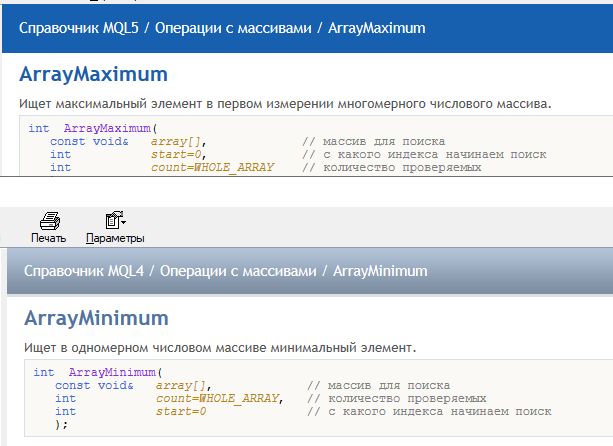Features of the mql5 language, subtleties and tricks - page 148
You are missing trading opportunities:
- Free trading apps
- Over 8,000 signals for copying
- Economic news for exploring financial markets
Registration
Log in
You agree to website policy and terms of use
If you do not have an account, please register
can you tell me why the compiler started swearing at this (screenshots attached)?
a year ago everything was ok, but now I put the latest terminal, compile and this
where can i find answers to these messages?
and how to correctly resolve this warning?
upd. added 3rd screenshot - same message on innocuous code
and 4th screenshot
what's the strictness of the compiler and how to solve it?
I encountered such a peculiarity.
If during definition of a class with static fields its object is created immediately, there will be a compilation error.
In the last version, the compiler did not complain about the variable without type in the class. But the EA crashed on startup
I stumbled across a "feature"... I spent over an hour translating the indicator from 4 to 5. i couldn't figure out where the error was, as the code seemed to be cross-platform. in the end, here it is, an inconspicuous place. for some reason they swapped two parameters:
improvement?
are there more of these?
StringConcatenate
there's probably more, I'm also interested in a complete list of such functions
---
it might be worth searching for #endif in the standard library
But the battle councillor ran into a situation where the councillor stopped working. Managed to get to the bottom of the cause. A cool nuance, which is almost impossible to notice.
You can really get a feel for it by trying to see the problem in this code.
But the battle councillor ran into a situation where the councillor stopped working. Managed to get to the bottom of the cause. A cool nuance, which is almost impossible to notice.
You can really get a feel for it by trying to see the problem in this code.
One of the main rules is that at what level you construct an object, at the same level you need to destruct it. Not higher or lower.
Thank you, good rule. Became a victim of my own incompetence. Really, need some more rule for such a more obvious case.
Maybe for both cases Warning clever to do?
But the battle councillor ran into a situation where the councillor stopped working. Managed to get to the bottom of the cause. A cool nuance, which is almost impossible to notice.
You can really get a feel for it by trying to see the problem in this code.